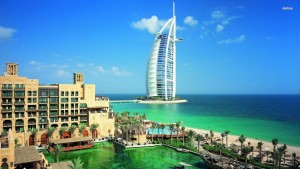Encouraging Creative and Critical Thinking in Early Years Education by Pete Moorhouse, Dubai

| Date | 18-19 march 2016 |
|---|---|
| Location | Dubai, UAE |
| Hotel | Holiday Inn Barsha, www.hialbarshadubai.com (special room rate for event) |
This course will focus on how to develop children’s creative thinking. We will gain an understanding of the importance creativity plays in education and in life as a whole. We will look in detail at the experience of Reggio Emilia and their approach to encouraging creativity and independent thinking. I will present two examples of children’s explorations in depth – Woodwork and Photography. The course will conclude by looking at the role of the teacher and the importance that the environment plays, both indoor and outdoor, in facilitating creative investigation and exploration. The pedagogical approach of Reggio Emilia will be the foundation underlying all the sessions.
Day 1
8:30 – 9:00 Participants arrival
9:00 – 11:00 Session 1 : Creativity
We will gain a thorough understanding of what creativity means. Learn why creativity is so important in education and in life in general. We will look at the many factors that contribute to encouraging and nurturing young children’s creativity.
11:00 – 11:30 Break
11:30 – 1:00 Session 2 : Learning from Reggio Emilia Approach
The Reggio Emilia approach is a world renowned educational philosophy originating from the preschools of Reggio Emilia in Northern Italy. Central to their philosophy is the importance of creativity and developing the child as an independent thinker. We will gain an in depth understanding of the Reggio Emilia approach and look at the main aspects of their philosophy. We will discover how we can take inspiration form Reggio Emilia into our own professional practice and Pete will share first-hand experience of visiting Reggio schools
1:00 – 2:00 Lunch
2:00 – 3:30 Session 3 : The Language and Dialogue of Photography
Learn how photography can be another tool for children’s creative expression and just how versatile it is. We will discover the potential for photography to stimulate communication – children’s voice. We will learn how photography can support all areas of learning by children documenting their own work
We will look at the use of photography as a way of consulting with children and understand how photography can be used as a tool for self-evaluation.
There will be information about the practicalities, best cameras for children, reviewing images, storage, software and how to successfully introduce photography to young children.
Day 2
9:00 – 11: 00 Session 4 : The Wonder of Woodwork
In this session we will learn all about the learning and development associated with woodwork and discover what a powerful medium it is for children’s creative thinking and problem solving. We will gain an insight into the historical context and current thinking. I will explain about health and safety issues and risk assessments and how to introduce tools safely and set up a woodworking area.
11:00 – 11:30 Break
11:30 – 1:00 Session 5 : Children’s Powerful Thinking and the Role of the Adult
We will investigate the role of the teacher in extending creative and critical thinking. We will look at sustained shared thinking and possibility thinking. We will also focus on the importance of documentation and reflective learning practice. We will also look at ways in which we can work together with parents to support children’s creative thinking.
1:00 – 2:00 Lunch
2:00 – 3:30 Session 6 : The Enabling Environment the Third Teacher
The impact that the environment can have on learning and development is profound. We will look at the aspects of the environment that play a part in encouraging creativity and wellbeing. In the Reggio Emilia approach they refer to the environment as the Third Teacher – showing the importance they place on creating the right environment for learning and growth. We will look at an environment audit – a resource that could be used to reflect on your current learning environment and plan for possible improvements. We will consider aesthetics, access to intelligent materials, opportunities for inquiry based learning, environmental factors, wellbeing and sustainability.
